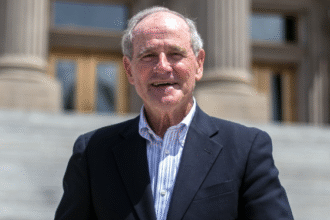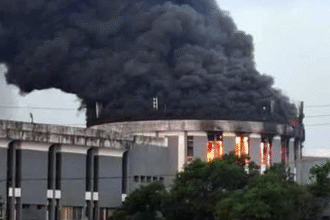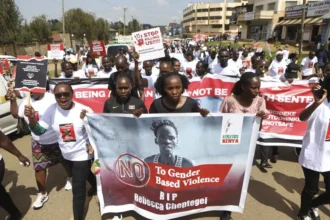WASHINGTON D.C. – The United States asylum system is experiencing an unexpected influx of applications from South African nationals, predominantly of white European descent, seeking refuge within its borders. Recent data indicates that nearly 70,000 South Africans have expressed interest in applying for asylum in the US, citing fears of racial discrimination, violence, and economic instability in their homeland.
This significant surge, which represents a notable increase compared to previous years, has sparked debate among immigration experts, human rights advocates, and US policymakers. While the reasons for seeking asylum are diverse, many applicants reportedly point to concerns over affirmative action policies, high crime rates in white communities, and perceived government inaction in addressing these issues.
“We are seeing a clear pattern here,” said Dr. Emily Carter, an immigration law professor at Georgetown University. “These individuals are claiming well-founded fears of persecution based on their race and perceived political affiliation. The US asylum system is designed to protect vulnerable populations, and these claims require careful consideration under international law.”
However, the influx also poses challenges for the already strained US asylum system. Immigration courts are facing significant backlogs, and resources are stretched thin. Managing the growing number of applications from South Africa will require additional personnel and infrastructure, potentially impacting the processing times for asylum seekers from other regions facing conflict and persecution.

“We are committed to processing all asylum applications fairly and efficiently,” stated a spokesperson for the Department of Homeland Security. “Each case is reviewed individually based on its merits and in accordance with US law.”
The situation has also drawn criticism from some human rights organizations, who argue that while the concerns of white South Africans should be addressed, the focus should remain on the systemic inequalities faced by black South Africans, who continue to bear the brunt of poverty, unemployment, and violence in the country.
“It’s crucial to maintain perspective,” said Thandiwe Nkosi, director of the South African Human Rights Advocacy Group. “While acknowledging the anxieties of some white South Africans, we cannot equate their experiences with the historical and ongoing marginalization faced by the black majority.”
The South African government has yet to officially comment on the increasing number of asylum applications. However, analysts suggest they are closely monitoring the situation and may need to address the underlying factors driving this emigration if they wish to retain a diverse and prosperous society.
The ongoing debate surrounding the surge in asylum applications from white South Africans highlights the complex interplay of race, politics, and economics in post-apartheid South Africa and raises fundamental questions about the scope and purpose of the US asylum system. As the number of applications continues to grow, the US government will face increasing pressure to navigate this sensitive issue while upholding its legal and humanitarian obligations.









